Resources by The Wabash Center
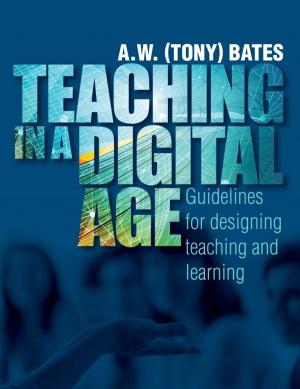
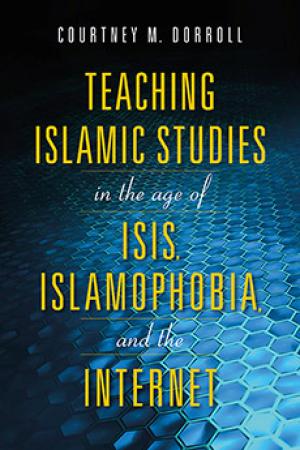
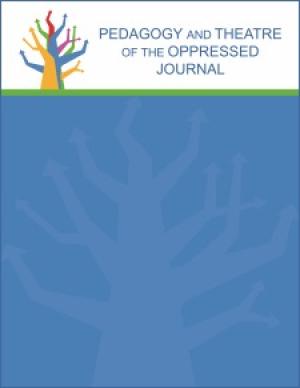
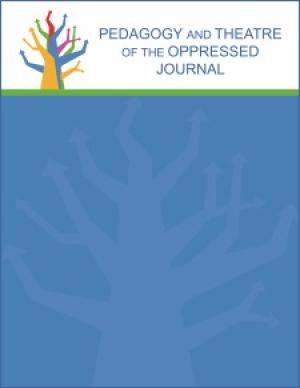
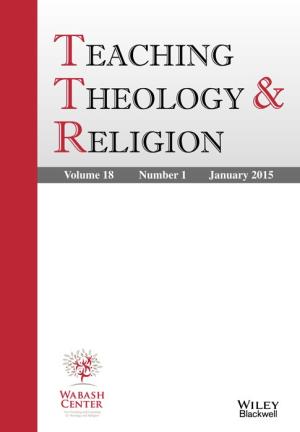
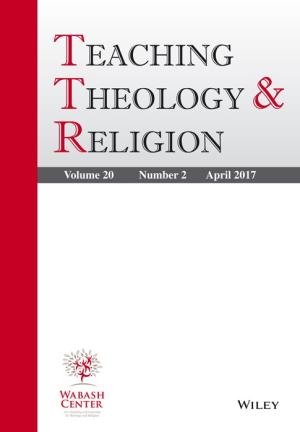
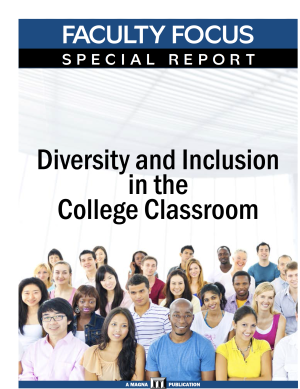
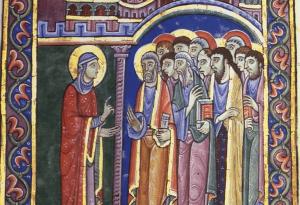

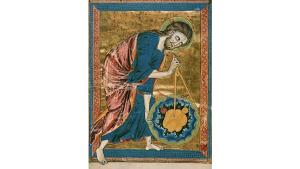


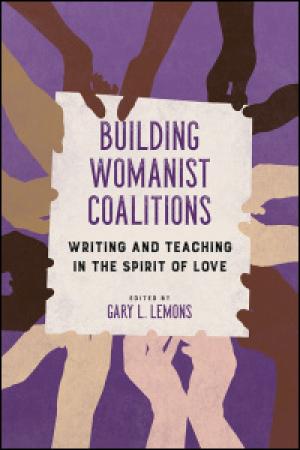
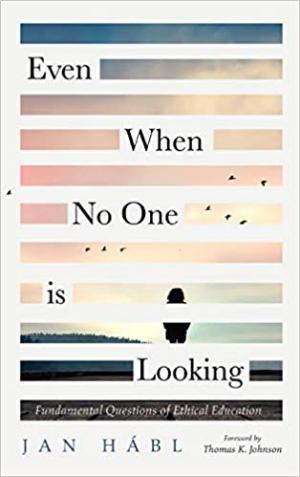
A 2018 course by Anthony Baker at the Seminary of the Southwest explores "the key doctrines of Christianity, from Trinity to salvation to eschatology, making use of a broad range of texts and ideas from across the historical and geographical range of the Anglican and ecumenical theological tradition."
A 2019 course by Madison Tarleton at the University of Denver/Illiff School of Theology introduces "students to the academic study of religion" through a survey of "early theorists and anthropologists as well as examine how these theories evolved over time."
Whether teaching online or face-to-face courses, Mary Hess, Luther Seminary, aims to create spaces where (in the words of Parker Palmer) obedience to truth can be practiced. “Learning,” she argues, “is risk-taking.” But she lets her students know that she, as the teacher, is with them in their learning adventure. Dr. Hess has had a variety of leadership roles at the Wabash Center over many years. The “I” That Teaches - A new video project that invites senior scholars to talk about their teaching lives. These scholar-teachers candidly discuss how religious, educational, and family backgrounds inform their vocational commitments and, also, characterize their teaching persona. From the vantage point of a practiced teaching philosophy we get an intimate account of the value and art of teaching well. Click here to watch all episodes of "The "I" That Teaches" on YouTube See Also: The "I" That Teaches - Dr. Mary Hess - Trailer The "I" That Teaches - Dr. Mary Hess - Bio
Whether teaching online or face-to-face courses, Mary Hess, Luther Seminary, aims to create spaces where (in the words of Parker Palmer) obedience to truth can be practiced. “Learning,” she argues, “is risk-taking.” But she lets her students know that she, as the teacher, is with them in their learning adventure. Dr. Hess has had a variety of leadership roles at the Wabash Center over many years. The “I” That Teaches - A new video project that invites senior scholars to talk about their teaching lives. These scholar-teachers candidly discuss how religious, educational, and family backgrounds inform their vocational commitments and, also, characterize their teaching persona. From the vantage point of a practiced teaching philosophy we get an intimate account of the value and art of teaching well. Click here to watch all episodes of "The "I" That Teaches" on YouTube See Also: The "I" That Teaches - Dr. Mary Hess - Trailer The "I" That Teaches - Dr. Mary Hess - Part 1
Whether teaching online or face-to-face courses, Mary Hess, Luther Seminary, aims to create spaces where (in the words of Parker Palmer) obedience to truth can be practiced. “Learning,” she argues, “is risk-taking.” But she lets her students know that she, as the teacher, is with them in their learning adventure. Dr. Hess has had a variety of leadership roles at the Wabash Center over many years. The “I” That Teaches - A new video project that invites senior scholars to talk about their teaching lives. These scholar-teachers candidly discuss how religious, educational, and family backgrounds inform their vocational commitments and, also, characterize their teaching persona. From the vantage point of a practiced teaching philosophy we get an intimate account of the value and art of teaching well. Click here to watch all episodes of "The "I" That Teaches" on YouTube See Also: The "I" That Teaches - Dr. Mary Hess - Bio The "I" That Teaches - Dr. Mary Hess - Part 1
At the time of this conversation, Eric Barreto was on the faculty at Luther Seminary, but he has since joined the faculty at Princeton Theological Seminary. His teaching practice is informed by his bi-regional and multi-lingual backgrounds. The biblical text and the ancient world are sites for destabilizing contemporary notions about the stability of historical conceptions of the possibility/ies of living harmoniously within diverse communities. The “I” That Teaches - A new video project that invites senior scholars to talk about their teaching lives. These scholar-teachers candidly discuss how religious, educational, and family backgrounds inform their vocational commitments and, also, characterize their teaching persona. From the vantage point of a practiced teaching philosophy we get an intimate account of the value and art of teaching well. Click here to watch all episodes of "The "I" That Teaches" on YouTube See Also: The "I" That Teaches - Dr. Eric Barretto - Trailer The "I" That Teaches - Dr. Eric Barretto - Bio The "I" That Teaches - Dr. Eric Barretto - Part 1
At the time of this conversation, Eric Barreto was on the faculty at Luther Seminary, but he has since joined the faculty at Princeton Theological Seminary. His teaching practice is informed by his bi-regional and multi-lingual backgrounds. The biblical text and the ancient world are sites for destabilizing contemporary notions about the stability of historical conceptions of the possibility/ies of living harmoniously within diverse communities. The “I” That Teaches - A new video project that invites senior scholars to talk about their teaching lives. These scholar-teachers candidly discuss how religious, educational, and family backgrounds inform their vocational commitments and, also, characterize their teaching persona. From the vantage point of a practiced teaching philosophy we get an intimate account of the value and art of teaching well. Click here to watch all episodes of "The "I" That Teaches" on YouTube See Also: The "I" That Teaches - Dr. Eric Barretto - Trailer The "I" That Teaches - Dr. Eric Barretto - Bio The "I" That Teaches - Dr. Eric Barretto - Part 2
At the time of this conversation, Eric Barreto was on the faculty at Luther Seminary, but he has since joined the faculty at Princeton Theological Seminary. His teaching practice is informed by his bi-regional and multi-lingual backgrounds. The biblical text and the ancient world are sites for destabilizing contemporary notions about the stability of historical conceptions of the possibility/ies of living harmoniously within diverse communities. The “I” That Teaches - A new video project that invites senior scholars to talk about their teaching lives. These scholar-teachers candidly discuss how religious, educational, and family backgrounds inform their vocational commitments and, also, characterize their teaching persona. From the vantage point of a practiced teaching philosophy we get an intimate account of the value and art of teaching well. Click here to watch all episodes of "The "I" That Teaches" on YouTube See Also: The "I" That Teaches - Dr. Eric Barretto - Trailer The "I" That Teaches - Dr. Eric Barretto - Part 1 The "I" That Teaches - Dr. Eric Barretto - Part 2
At the time of this conversation, Eric Barreto was on the faculty at Luther Seminary, but he has since joined the faculty at Princeton Theological Seminary. His teaching practice is informed by his bi-regional and multi-lingual backgrounds. The biblical text and the ancient world are sites for destabilizing contemporary notions about the stability of historical conceptions of the possibility/ies of living harmoniously within diverse communities. The “I” That Teaches - A new video project that invites senior scholars to talk about their teaching lives. These scholar-teachers candidly discuss how religious, educational, and family backgrounds inform their vocational commitments and, also, characterize their teaching persona. From the vantage point of a practiced teaching philosophy we get an intimate account of the value and art of teaching well. Click here to watch all episodes of "The "I" That Teaches" on YouTube See Also: The "I" That Teaches - Dr. Eric Barretto - Bio The "I" That Teaches - Dr. Eric Barretto - Part 1 The "I" That Teaches - Dr. Eric Barretto - Part 2
For Kenneth Ngwa, Drew Theological Seminary, teaching is not just a vocation but it’s a way of life. He confesses, “I cannot but teach.” Teaching is about a community of learners coming together to make meaning from a set of texts or artifacts. “I think teaching is a powerful tool, ” continues Ngwa, “to shape not just individual perspectives but how society functions.” He teaches classes in the Hebrew Bible and is an important voice in the field of African Biblical Hermeneutics. The “I” That Teaches - A new video project that invites senior scholars to talk about their teaching lives. These scholar-teachers candidly discuss how religious, educational, and family backgrounds inform their vocational commitments and, also, characterize their teaching persona. From the vantage point of a practiced teaching philosophy we get an intimate account of the value and art of teaching well. Click here to watch all episodes of "The "I" That Teaches" on YouTube See Also: The "I" That Teaches - Dr. Kenneth Ngwa - Trailer The "I" That Teaches - Dr. Kenneth Ngwa - Bio
For Kenneth Ngwa, Drew Theological Seminary, teaching is not just a vocation but it’s a way of life. He confesses, “I cannot but teach.” Teaching is about a community of learners coming together to make meaning from a set of texts or artifacts. “I think teaching is a powerful tool, ” continues Ngwa, “to shape not just individual perspectives but how society functions.” He teaches classes in the Hebrew Bible and is an important voice in the field of African Biblical Hermeneutics. The “I” That Teaches - A new video project that invites senior scholars to talk about their teaching lives. These scholar-teachers candidly discuss how religious, educational, and family backgrounds inform their vocational commitments and, also, characterize their teaching persona. From the vantage point of a practiced teaching philosophy we get an intimate account of the value and art of teaching well. Click here to watch all episodes of "The "I" That Teaches" on YouTube See Also: The "I" That Teaches - Dr. Kenneth Ngwa - Trailer The "I" That Teaches - Dr. Kenneth Ngwa - Part 1
For Kenneth Ngwa, Drew Theological Seminary, teaching is not just a vocation but it’s a way of life. He confesses, “I cannot but teach.” Teaching is about a community of learners coming together to make meaning from a set of texts or artifacts. “I think teaching is a powerful tool, ” continues Ngwa, “to shape not just individual perspectives but how society functions.” He teaches classes in the Hebrew Bible and is an important voice in the field of African Biblical Hermeneutics. The “I” That Teaches - A new video project that invites senior scholars to talk about their teaching lives. These scholar-teachers candidly discuss how religious, educational, and family backgrounds inform their vocational commitments and, also, characterize their teaching persona. From the vantage point of a practiced teaching philosophy we get an intimate account of the value and art of teaching well. Click here to watch all episodes of "The "I" That Teaches" on YouTube See Also: The "I" That Teaches - Dr. Kenneth Ngwa - Bio The "I" That Teaches - Dr. Kenneth Ngwa - Part 1
Dr. Joseph Tucker-Edmonds, IUPUI, pulls on the rhetorical practices of the Black Afro-Christian Religious tradition to enliven the classroom experience. He teaches courses on Religion and the Politics of Dissent in the African American Experience, Comparative Liberation Theologies, and Comparative Religions. The “I” That Teaches - A new video project that invites senior scholars to talk about their teaching lives. These scholar-teachers candidly discuss how religious, educational, and family backgrounds inform their vocational commitments and, also, characterize their teaching persona. From the vantage point of a practiced teaching philosophy we get an intimate account of the value and art of teaching well. Click here to watch all episodes of "The "I" That Teaches" on YouTube See Also: The "I" That Teaches - Dr. Joseph Tucker Edmonds - Trailer The "I" That Teaches - Dr. Joseph Tucker Edmonds - Bio
Dr. Joseph Tucker-Edmonds, IUPUI, pulls on the rhetorical practices of the Black Afro-Christian Religious tradition to enliven the classroom experience. He teaches courses on Religion and the Politics of Dissent in the African American Experience, Comparative Liberation Theologies, and Comparative Religions. The “I” That Teaches - A new video project that invites senior scholars to talk about their teaching lives. These scholar-teachers candidly discuss how religious, educational, and family backgrounds inform their vocational commitments and, also, characterize their teaching persona. From the vantage point of a practiced teaching philosophy we get an intimate account of the value and art of teaching well. Click here to watch all episodes of "The "I" That Teaches" on YouTube See Also: The "I" That Teaches - Dr. Joseph Tucker Edmonds - Trailer The "I" That Teaches - Dr. Joseph Tucker Edmonds - Part 1
Dr. Joseph Tucker-Edmonds, IUPUI, pulls on the rhetorical practices of the Black Afro-Christian Religious tradition to enliven the classroom experience. He teaches courses on Religion and the Politics of Dissent in the African American Experience, Comparative Liberation Theologies, and Comparative Religions. The “I” That Teaches - A new video project that invites senior scholars to talk about their teaching lives. These scholar-teachers candidly discuss how religious, educational, and family backgrounds inform their vocational commitments and, also, characterize their teaching persona. From the vantage point of a practiced teaching philosophy we get an intimate account of the value and art of teaching well. Click here to watch all episodes of "The "I" That Teaches" on YouTube See Also: The "I" That Teaches - Dr. Joseph Tucker Edmonds - Bio The "I" That Teaches - Dr. Joseph Tucker Edmonds - Part 1
“Teaching is an art and not a science,” states David Blix, Wabash College. It is about “interacting with students” in a “friendly manner” which is to say that teaching is about what he does in his everyday life. A deeply engaged student-centered teacher of religions of the world, Blix was a Carnegie Scholar at the Carnegie Institute for the Advancement of Teaching in Palo Alto, California. The “I” That Teaches - A new video project that invites senior scholars to talk about their teaching lives. These scholar-teachers candidly discuss how religious, educational, and family backgrounds inform their vocational commitments and, also, characterize their teaching persona. From the vantage point of a practiced teaching philosophy we get an intimate account of the value and art of teaching well. Click here to watch all episodes of "The "I" That Teaches" on YouTube See Also: The "I" That Teaches - Dr. David Blix - Bio
“Teaching is an art and not a science,” states David Blix, Wabash College. It is about “interacting with students” in a “friendly manner” which is to say that teaching is about what he does in his everyday life. A deeply engaged student-centered teacher of religions of the world, Blix was a Carnegie Scholar at the Carnegie Institute for the Advancement of Teaching in Palo Alto, California. The “I” That Teaches - A new video project that invites senior scholars to talk about their teaching lives. These scholar-teachers candidly discuss how religious, educational, and family backgrounds inform their vocational commitments and, also, characterize their teaching persona. From the vantage point of a practiced teaching philosophy we get an intimate account of the value and art of teaching well. Click here to watch all episodes of "The "I" That Teaches" on YouTube See Also: The "I" That Teaches - Dr. David Blix - Part 1
Anita Houck, Saint Mary’s College, enriches her teaching with skills she learned from Improv. She always addresses students’ questions with a “Yes” before nudging them beyond their scope of inquiry. She is a humorist who meets students where they are and, then, tickles them into a deeper sense of the subject and, perhaps, themselves. She is a recipient of the institution’s prestigious Maria Pieta Award for Excellence in Teaching. The “I” That Teaches - A new video project that invites senior scholars to talk about their teaching lives. These scholar-teachers candidly discuss how religious, educational, and family backgrounds inform their vocational commitments and, also, characterize their teaching persona. From the vantage point of a practiced teaching philosophy we get an intimate account of the value and art of teaching well. Click here to watch all episodes of "The "I" That Teaches" on YouTube See Also: The "I" That Teaches - Dr. Anita Houck - Trailer The "I" That Teaches - Dr. Anita Houck - Bio The "I" That Teaches - Dr. Anita Houck - Part 1
Anita Houck, Saint Mary’s College, enriches her teaching with skills she learned from Improv. She always addresses students’ questions with a “Yes” before nudging them beyond their scope of inquiry. She is a humorist who meets students where they are and, then, tickles them into a deeper sense of the subject and, perhaps, themselves. She is a recipient of the institution’s prestigious Maria Pieta Award for Excellence in Teaching. The “I” That Teaches - A new video project that invites senior scholars to talk about their teaching lives. These scholar-teachers candidly discuss how religious, educational, and family backgrounds inform their vocational commitments and, also, characterize their teaching persona. From the vantage point of a practiced teaching philosophy we get an intimate account of the value and art of teaching well. Click here to watch all episodes of "The "I" That Teaches" on YouTube See Also: The "I" That Teaches - Dr. Anita Houck - Trailer The "I" That Teaches - Dr. Anita Houck - Bio The "I" That Teaches - Dr. Anita Houck - Part 2
Anita Houck, Saint Mary’s College, enriches her teaching with skills she learned from Improv. She always addresses students’ questions with a “Yes” before nudging them beyond their scope of inquiry. She is a humorist who meets students where they are and, then, tickles them into a deeper sense of the subject and, perhaps, themselves. She is a recipient of the institution’s prestigious Maria Pieta Award for Excellence in Teaching. The “I” That Teaches - A new video project that invites senior scholars to talk about their teaching lives. These scholar-teachers candidly discuss how religious, educational, and family backgrounds inform their vocational commitments and, also, characterize their teaching persona. From the vantage point of a practiced teaching philosophy we get an intimate account of the value and art of teaching well. Click here to watch all episodes of "The "I" That Teaches" on YouTube See Also: The "I" That Teaches - Dr. Anita Houck - Trailer The "I" That Teaches - Dr. Anita Houck - Part 1 The "I" That Teaches - Dr. Anita Houck - Part 2
Anita Houck, Saint Mary’s College, enriches her teaching with skills she learned from Improv. She always addresses students’ questions with a “Yes” before nudging them beyond their scope of inquiry. She is a humorist who meets students where they are and, then, tickles them into a deeper sense of the subject and, perhaps, themselves. She is a recipient of the institution’s prestigious Maria Pieta Award for Excellence in Teaching. The “I” That Teaches - A new video project that invites senior scholars to talk about their teaching lives. These scholar-teachers candidly discuss how religious, educational, and family backgrounds inform their vocational commitments and, also, characterize their teaching persona. From the vantage point of a practiced teaching philosophy we get an intimate account of the value and art of teaching well. Click here to watch all episodes of "The "I" That Teaches" on YouTube See Also: The "I" That Teaches - Dr. Anita Houck - Bio The "I" That Teaches - Dr. Anita Houck - Part 1 The "I" That Teaches - Dr. Anita Houck - Part 2
The “I” That Teaches - A new video project that invites senior scholars to talk about their teaching lives. These scholar-teachers candidly discuss how religious, educational, and family backgrounds inform their vocational commitments and, also, characterize their teaching persona. From the vantage point of a practiced teaching philosophy we get an intimate account of the value and art of teaching well. We begin this series with an interview with Dr. Victor Anderson, Vanderbilt School of Divinity. The title for this project comes from a lecture that Prof. Anderson delivered at Wabash College. Click here to watch all episodes of "The "I" That Teaches" on YouTube See Also: The "I" That Teaches - Dr. Victor Anderson - Bio The "I" That Teaches - Dr. Victor Anderson - Part 1 The "I" That Teaches - Dr. Victor Anderson - Part 2
The “I” That Teaches - A new video project that invites senior scholars to talk about their teaching lives. These scholar-teachers candidly discuss how religious, educational, and family backgrounds inform their vocational commitments and, also, characterize their teaching persona. From the vantage point of a practiced teaching philosophy we get an intimate account of the value and art of teaching well. We begin this series with an interview with Dr. Victor Anderson, Vanderbilt School of Divinity. The title for this project comes from a lecture that Prof. Anderson delivered at Wabash College. Click here to watch all episodes of "The "I" That Teaches" on YouTube See Also: The "I" That Teaches - Dr. Victor Anderson - Trailer The "I" That Teaches - Dr. Victor Anderson - Part 1 The "I" That Teaches - Dr. Victor Anderson - Part 2
The “I” That Teaches - A new video project that invites senior scholars to talk about their teaching lives. These scholar-teachers candidly discuss how religious, educational, and family backgrounds inform their vocational commitments and, also, characterize their teaching persona. From the vantage point of a practiced teaching philosophy we get an intimate account of the value and art of teaching well. We begin this series with an interview with Dr. Victor Anderson, Vanderbilt School of Divinity. The title for this project comes from a lecture that Prof. Anderson delivered at Wabash College. Click here to watch all episodes of "The "I" That Teaches" on YouTube See Also: The "I" That Teaches - Dr. Victor Anderson - Trailer The "I" That Teaches - Dr. Victor Anderson - Bio The "I" That Teaches - Dr. Victor Anderson - Part 1
The “I” That Teaches - A new video project that invites senior scholars to talk about their teaching lives. These scholar-teachers candidly discuss how religious, educational, and family backgrounds inform their vocational commitments and, also, characterize their teaching persona. From the vantage point of a practiced teaching philosophy we get an intimate account of the value and art of teaching well. We begin this series with an interview with Dr. Victor Anderson, Vanderbilt School of Divinity. The title for this project comes from a lecture that Prof. Anderson delivered at Wabash College. Click here to watch all episodes of "The "I" That Teaches" on YouTube See Also: The "I" That Teaches - Dr. Victor Anderson - Trailer The "I" That Teaches - Dr. Victor Anderson - Bio The "I" That Teaches - Dr. Victor Anderson - Part 2
A 2014 course by Barry Bryant at Garrett-Evangelical Theological Seminary "explores the roots of the movement in the Anglican Church and the Wesleyan Revival of the 18th century, the history of the institutional and theological development of American Methodist/Evangelical United Brethren tradition through the 19th century."
A 2014 course by Barry Bryant at Garrett-Evangelical Theological Seminary surveys "the theological, historical, and denominational structure of the United Methodist Church from the beginning of the 20th century to the present. Attention to themes such as the ecumenical movement, world missions, evangelism, and social justice will also be given."
A 2014 course by Mark Fowler at Garrett-Evangelical Theological Seminary focuses on "on the broader ecology of the ecclesiological forms, governance configurations, membership and orders as they are expressions of the United Methodist expression of Christian mission."
A 2014 course by Jonathan Dodrill at Garrett-Evangelical Theological Seminary "explores the roots of the movement in the Anglican Church and the Wesleyan Revival of the 18th century, and the history of the institutional and theological development of American Methodist/Evangelical United Brethren tradition through the beginning of the 21st century."
A 2014 course by Margaret Ann Crain at Garrett-Evangelical Theological Seminary offers an "exploration of the possibilities, origins, theology, and ministry of the Order of Deacon in the UMC."
A 2018 course by Marga Vega at the Dominican School of Philosophy and Theology "is a survey of epistemology that brings together Classical philosophy approaches with Contemporary debates. . . . a study [of] the nature of cognition, perception and rational knowledge as well as the main epistemological problems that concern these sources."
A 2015 course by Corey Harris at Alvernia University is a "study and analysis of concepts in fundamental moral theology, particular forms of addiction, and the social ethics implications of those addictions."
A 2014 course by David DeCosse at Santa Clara University uses selections from the Summa Theologica to survey Thomas's theology and ethics.
A 2008 course by Wesley Wildman at Boston University seeks "to connect [students] powerful contemporary understandings of the world to the practical contexts in which they already or will soon work."
A 2014 course by Tamar Wasoian at Garrett-Evangelical Theological School "focuses on the dynamics of Christian education as a vital component of the ministry of the church. It combines insights from the field of education with the call of the church to teach and educate."
A 2014 course by Mark Fowler at Garrett-Evangelical Theological Seminary focuses "on putting together the practical and conceptual frameworks of leadership in the context of both a class room case and a case developed-for-learning that is challenging in the studentâs present context."
A 2014 course by Frederick Schmidt at Garrett-Evangelical Theological Seminary "Explores biblical texts, historical traditions, and modern approaches to the art of spiritual direction/guidance and its place in the church today; relationship of spiritual direction to counseling, therapy, and mentoring."
A 2014 course by Jack Seymour at Garrett-Evangelical Theological Seminary "focuses on practical theology as a theological method."
A 2014 course by Ron Anderson at Garrett-Evangelical Theological Seminary provides "a historical and theological overview of church music. Although there will be some semblance to surveys of music history, it will focus on the various histories and traditions that have primarily shaped the practice of church music in North America."
A 2014 course by Ron Anderson at Garrett-Evangelical Theological Seminary asks "What is a sacrament? What does a sacrament do? For whom? How do sacramental theologies interact with or reflect other theological concerns, e.g., creation, Christology, pneumatology, and ecclesiology?"
A 2016 course by James McGrath at Butler University explores "big questions" through the lens of religion and science fiction.
A 2014 course by Pam Holliman is a seminar focused "on relational psychoanalytic theory with a theological emphasis on the doctrine of the Trinity. There will be some focus on the parish, but more in the theoretical sense that leads to some focus on the practical."
A 2014 course by Cheryl Anderson at Garrett-Evangelical Theological Seminary surveys the canonical, historical, and theological dimensions of the Book of Amos.
A 2014 course by Mark Fowler at Garrett-Evangelical Theological Seminary "is designed to help students find their individual preaching voice as they develop the abilities and skills necessary for the construction and delivery of effective sermons."
A 2014 course by Gennifer Brooks at Garrett-Evangelical Theological Seminary surveys "the history, theology and practice of preaching in the African American context, generally referred to as Black Preaching."
A 2014 course by David Hogue at Garrett-Evangelical Theological Seminary provides "an overview of marriage and family counseling within both parish and clinical settings for the pastoral counselor." Family Systems Theory will be central.
A 2014 course by Barry Bryant at Garrett-Evangelical Theological Seminary examines "the key issues and basic theological questions relating to the Holy Spirit, the Church, and the Last Things. Among the topics explored are the filioque, baptism, eucharist, ministry and eschatology as a doctrine of hope.â
A 2014 course by Cheryl Anderson at Garrett-Evangelical Theological Seminary explores "the book of Exodus, its canonical and historical setting, its laws, and theological themes" as well as contemporary interpretations and artistic depictions.
A 2014 course by Mark Fowler at Garrett-Evangelical Theological Seminary surveys "the responsibilities, tasks and relationships of the pastor within various contexts." The course "provides practical guidance for pastoral visitation, use of time, stewardship, congregational communication, conducting weddings, funerals and public ceremonies, prison visitation as well as ecumenical and inter-faith relationships."
A 2002 course by Wesley Wildman at Boston University acquaints students "with the most significant western theological movements, figures and problems of the modern period. Attention is paid to non-western theological reflection, especially in the twentieth century, but the main emphasis is on western theology."